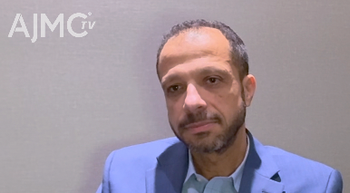
Scott Hewitt Describes the Ongoing Shift to Value-Based Arrangements
While not every doctor is successful in value-based contracts, there is a shift in the right direction to more value-based care, explained Scott Hewitt, vice president, payment strategy and innovation, UnitedHealthcare.
While not every doctor is successful in value-based contracts, there is a shift in the right direction to more value-based care, explained Scott Hewitt, vice president, payment strategy and innovation, UnitedHealthcare.
Transcript
How have UnitedHealthcare’s value-based care contracts been improving?
So, we have a plethora of information or data points that we can look at, whether it’s reduced inpatient days, reduced [emergency room] use, increased [primary care physician] visits, lower specialty visits per 1000, but it’s more than just utilization metrics, it’s also quality metrics and when we look at quality metrics we’re seeing our providers are in a value-based contracting arrangement. So, it doesn’t necessarily need to be an [accountable care organization] but that they’re focused on and improving the care that members are receiving.
So, it might be lowering C-section rates, it might be focused on appropriate use of lab services, it might be prescription drug use or generic drug use, tier one drug use. There’s lots of different measures that we look at it at UnitedHealthcare and while not every provider is successful in these arrangements, if I look at my entire book of business, I am seeing the shift in the right direction.
Newsletter
Stay ahead of policy, cost, and value—subscribe to AJMC for expert insights at the intersection of clinical care and health economics.














